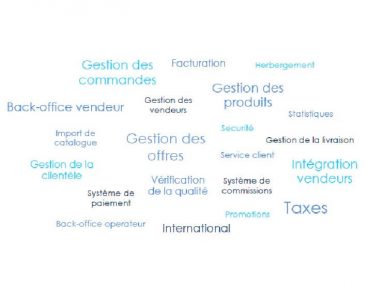Is ‘Peak Attention’ Behind Us?
28 October 2016 - Author : Laetitia VitaudAs individuals are learning to cope with ‘Information Overload’, it will be increasingly hard to grab their attention

It is unclear where the phrase ‘Peak Attention’ originally came from. What is certain is that it is particularly eloquent and relevant. The phrase was modelled after ‘Peak Oil’, which refers to the time of maximum global oil production, the time after which new oil reserves become harder to find, are smaller, and more expensive to drill into. Peak Oil is when every extra gallon of oil becomes slightly more expensive to produce than the previous one. Oil fuelled the growth of the Fordist economy. The fact that its peak may now be past us is laden with meaning.
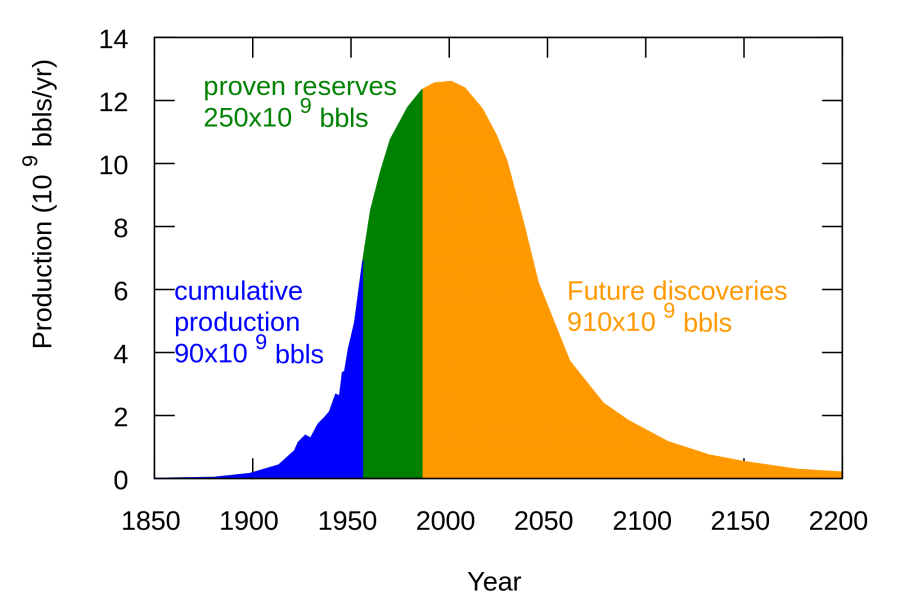
Throughout the second half of the 20th century, as the information age transformed the Fordist economy, consumers’ time and attention became the number one resource to create value. Long before the internet, the golden age of advertising, radio and television taught us about the value of one second’s worth of consumer attention. With the rise of the Internet, every economic agent learned to fight to win a bit of that attention.
For two decades Internet users have been exposed to a steadily increasing amount of information: more media, more apps, more ads, more messages. What used to be top-down mass information turned into bottom-up targeted information. And customized information grabs our attention even more. The data produced by users is used to better target them, so they can produce more data, and so on and so forth.
Up until recently, there was still room for further increase — after all not every second of consumers’ time had yet been colonized: Google started developing self-driving cars to free some more minutes of its users attention and colonize more of their time. But for some time we may have reached the peak. Every extra second of attention becomes more costly to grab and is gained at the expense of some competitor, by robbing Peter to pay Paul. Is the peak really behind us?
On the ascending slope towards Peak Attention is ‘Information Overload’
Information overload, also called ‘infoxication’, refers to a person’s difficulty to understand an issue and make decisions due to their exposition to too much information. There is an overload when the input to the system (the human brain) exceeds its processing capacity. The incapacity to make a decision can occur when there is too much choice, for example. The exceedingly large number of toothpaste brands in a supermarket will make a new consumer dizzy and incapable of making a decision, while a more experienced consumer will have learned to escape the choice by buying the same brand over and over again.
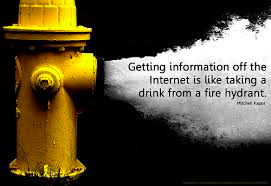
On the ascending slope towards Peak Attention, every economic actor’s aim was to expose consumers to more information. The number of media, brands, means of communication, and messages increased steadily for half a century at least. The early age of the Internet, when there was not much information available online, any website’s main value was to expose users to as much information as possible. That is the reason for the success of the internet portals in the 1990s. They were meant to be a user’s entry point to everything online. Good design meant providing access to as much as possible so consumers would have a wider choice of options to choose from.
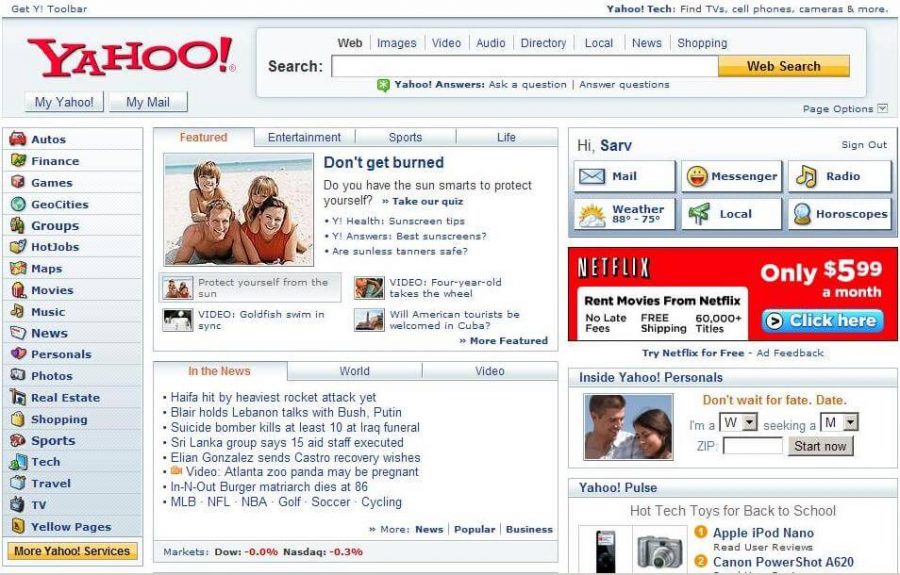
However, as the amount of information increased, the portals and all the other information-concentrating tools soon found their limits. Decision makers have fairly limited cognitive processing capacities. When information overload occurs, a reduction in decision quality is sure to happen. Fewer consumers will be able to process all the information available to them before making their choices. They will rely on a variety of strategies to overcome the difficulty.
That is the subject of a book by Daniel Levitin, a McGill University psychology professor, titled “The Organized Mind: Thinking Straight in the Age of Information Overload”.
“In 1976, there were 9,000 products in the average grocery store, and now it’s ballooned to 40,000 products. And yet most of us can get almost all our shopping done in just 150 items, so you’re having to ignore tens of thousands of items every time you go shopping”, he writes. “The conscious mind can pay attention to three, maybe four, things at once. If you get much beyond that, you begin to exercise poorer judgment, you lose track of things and you lose focus”.
Funneling our way out of information overload
Increasingly fast and sophisticated information technologies have increased our focus on information overload. We produce more information more quickly and disseminate this information to a wider audience than ever before. But we are also increasingly aware of our inability to handle the “data smog”. So new services, products and designs are now almost exclusively about limiting the amount of available choices rather than maximizing it. A lot of new trends suggest we could already be well past Peak Attention. Here are a few:
- Modern digital design is about simplicity. Less is more. It is about making it easy even for a child’s brain to process the information of the web page. The Yahoo portal’s design is a thing of the past. Google’s page looks radically different. (Read our WillBe Group article about the importance of design, in French, here). Being of value means eliminating the overload.
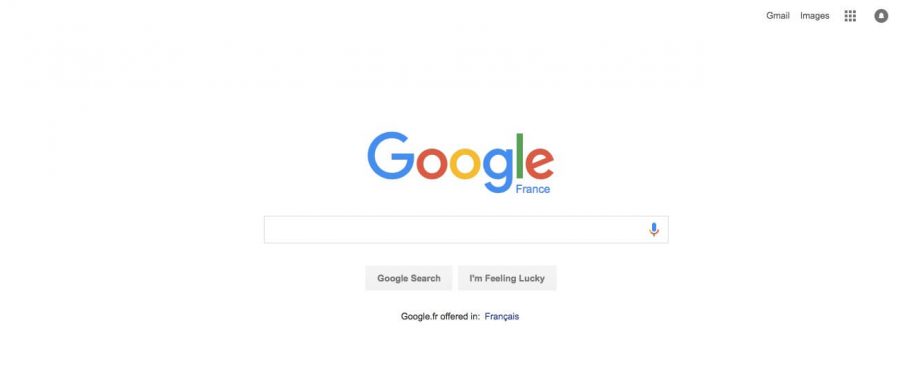
- Consumers are not downloading apps anymore. Earlier this year, a Recode article was aptly titled “The app boom is over”. According to this article (and many more on the subject), “people are still making plenty of apps, of course. And many people are still downloading them. But the go-go growth days are gone. If you are an independent app developer or publisher, you have probably known this for a while, because you have found it very difficult to get people to download your app — the average American smartphone user downloads zero apps per month.”
- Digital detox is a growing trend that has its gurus, its techniques and its legislators. New rules of savoir-vivre are being adopted by users and companies alike. To protect employees from digital burnout, the French government is even considering banning email after dark. A BBC journalist recently wrote that “companies of more than 50 people will be obliged to draw up a charter of good conduct, setting out the hours — normally in the evening and at the weekend — when staff are not supposed to send or answer emails. Much mockery was made in the foreign press when the proposal was first mooted, with images of hawk-eyed work inspectors snooping on the industrious. But the French government says the problem of permanent connection is universal and growing — and that intervention is needed.”
- A whole lot of new tools are designed to protect users against their own digital addictions. The success of apps such as SelfControl and focus booster are a case in point. They block out distracting websites for a set amount of time. See here the “ten online tools for better attention and focus”.
- Ad blockers are increasingly popular. Software can remove or alter advertising content from a web page, website or mobile app. Ad blockers reduce or eliminate the number of unwanted, unsolicited pop up ads that appear on the user’s display. As they become more widespread, advertisers have to use cunning techniques to counter the ad blockers.
- More relevant and abundant information means algorithms can help users have less to process. With the increasing amount of data, more sophisticated algorithms have been created to feed users with less but more relevant information. The more data there are, the more relevant the targeting strategies become. In fact the decline of top-down standardized mass information means there can be less information, rather than more.
- Artificial intelligence tools already process vast amounts of information for us. These tools are improving so fast, that there are already tools that can answer our emails. X.ai and JulieDesk are AI-based personal assistant tools that can schedule meetings for users.
- Internet bots are said to be the next revolution. These software applications can run more and more automated tasks, perform tasks users would normally have to do, and centralize more functions on a single interface. They mark the advent of a new age of machine-human cooperation, that frees human beings of much of the information overload they suffer from today.
Conclusion
There is reason to believe we are already past Peak Attention. If the colonization of our attention was the fuel of our information-based economy the way oil was the fuel of the Fordist economy, then what does it mean that we are now on the descending slope?
It could mark the decline of all the corporations built as ‘oil rigs of human attention’ and a new age of lifestyle businesses could take over. What is certain is that everyone, advertisers as well as corporations, should brace themselves for a new age. More aggressive pop-up ads, more business-as-usual communication methods, and more smartphone apps won’t work. Speaker and consultant Venkatesh Rao believes the next resource could be ‘perspective’, the art of presenting a distinctive point of view.
What do you think?


